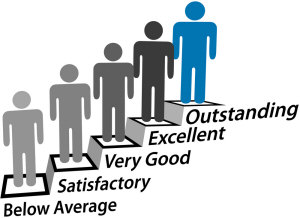Mastering The Art Of Delegation Leadership
Introduction
 In this article we are going to look at a key management skill: Delegation.
Delegation is the process of asking another person to do a task while still
maintaining responsibility for that task. Delegation occurs every day in
organizations around the world. In your professional life, you have probably had
something entrusted to you, and you may have also given tasks to others. In this article we are going to look at a key management skill: Delegation.
Delegation is the process of asking another person to do a task while still
maintaining responsibility for that task. Delegation occurs every day in
organizations around the world. In your professional life, you have probably had
something entrusted to you, and you may have also given tasks to others.
Delegation can range from giving someone a simple everyday task to appointing
someone as the leader of a complex project. Appointments can be short-term, from
minutes to a couple of weeks, or long-term, from a few weeks to months. No
matter the size of your organization or the industry you work in, delegation is
at the heart of its functionality.
In fact, a typical organizational chart is actually a visual representation
of delegated authority. And even if you work for yourself, you may still
delegate tasks to others that you hire, like printers or marketers or other
professional services. And we delegate at home too. So you see, delegation is
everywhere, and by becoming an effective delegator, you can become more
efficient in several areas of your life.
The Benefits Of Delegation
Delegation is a very important interaction that lies at the intersection of
three things, the delegator, you; the delegate, the person you are handing a
task to; and the organization that the interaction is housed within. For the
sake of simplicity we are going to talk about the typical example of a manager
and an employee, but these principles can be applied to any setting.
As the delegator, you are instrumental in making the process go smoothly.
Most people think there is only one phase, you ask the employee to do a task and
they do it. But actually, successful delegation is more complex than that. It
requires you to be savvy with both project management as well as people skills.
Better Relationships
 Becoming an effective delegator has several benefits for you, your employees,
and the organization. Delegating effectively can make you a better supervisor.
By improving your skills in this area, you can create better, more effective
relationships with your employees. And this can increase their respect of you as
a leader. Studies have shown that the number one reason people leave a job is
because they don't like or respect their boss. So being an effective delegator
has the possibility of increasing retention among your staff. Becoming an effective delegator has several benefits for you, your employees,
and the organization. Delegating effectively can make you a better supervisor.
By improving your skills in this area, you can create better, more effective
relationships with your employees. And this can increase their respect of you as
a leader. Studies have shown that the number one reason people leave a job is
because they don't like or respect their boss. So being an effective delegator
has the possibility of increasing retention among your staff.
In addition, studies show that employees who feel a sense of achievement have
the most job satisfaction. This also contributes to retaining your best people.
Did you know that the cost for replacing an employee is 50% to 100% of their
annual salary? So retaining good people can also lead to significant savings.
Next, as you delegate more proficiently, your team can become more effective and
efficient in completing its tasks. This can help your department increase its
overall productivity.
Also, your workload can become more manageable as you pass some things to
others. And you will be able to focus your time and energy on the projects that
require your knowledge and experience. Hopefully this will lead to reduction in
your stress level as well. I know it's made a big difference in mine. Now that
you know the benefits of delegating more effectively, let's see to do it.
How to Be a Better Delegator
Task Evaluation
Delegation is an important skill that all managers use frequently and is at
the heart of any organization's success. However, sometimes delegation does not
go smoothly, because the manager and the employee don't share the same
understanding of the process. There are lot of ways to look at delegation, but
one that works well in many US companies is what I call the four-phase model of
delegation.
Four Phase Model
The four phases are called: Evaluation, Handover, Support, and Debrief. The
phases are linear, meaning that you need to complete one before you go on to the
next. The first phase in the four-phase process is called Evaluation. In this
phase you assess aspects of the organization, your workload, and your employees.
This will help you determine what can and should be delegated and to whom
various projects should be given.
Evaluation
 Evaluation has two parts: evaluating the task, and evaluating the people.
Each part is important and will ultimately guide what you delegate and to whom.
Unfortunately, evaluation is the phase that most managers skip, because they
feel pressed for time. This can set up a pattern where managers try to do too
many things themselves, and then when the workload gets to be too much, dump
tasks on others at the last minute. This not only affects the success of the
tasks being done well, but can also harm the relationship between the manager
and employees. Evaluation has two parts: evaluating the task, and evaluating the people.
Each part is important and will ultimately guide what you delegate and to whom.
Unfortunately, evaluation is the phase that most managers skip, because they
feel pressed for time. This can set up a pattern where managers try to do too
many things themselves, and then when the workload gets to be too much, dump
tasks on others at the last minute. This not only affects the success of the
tasks being done well, but can also harm the relationship between the manager
and employees.
So take the time to do this phase because it will set you and your team up
for success. It will take a little time up front, but consider it an investment
that will pay off down the road. When evaluating the task you should start with
assessing the organization and your responsibilities as a manager. It's
important to get a thorough look at the big picture because that will guide
several of your delegation decisions for months to come.
Plan to take at least one week to do a thorough evaluation process. This will
help you get a sense of how you really spend your time. You will want to analyze
your workload first, take notes about what you spend your time on each day, use
the schedule grid page of the handout, and fill in what a couple of typical
weeks look like for you. In addition to time you spend on projects, in meetings
and coaching employees, make sure to include time that you spend on mental
tasks, like thinking, analyzing, and strategizing.
What To Delegate?
Now you are ready to analyze the tasks you previously identified. We want to
not only find things to take off your plate, but use this as an opportunity to
simultaneously help your employees grow. As a manager, your time is valuable.
You want to keep tasks that require your expertise and experience, and delegate
tasks that can be done by others. Certain tasks and responsibilities cannot be
delegated, such as personnel decisions, budget oversight, and strategizing for
the future. But you will be surprised how many things you are currently doing
that should be moved off your plate.
Goals Of The Company
Next, look at how important tasks are to the organization's goals. If
something is low importance, consider whether it should be on anyone's plate,
let alone yours.
Here is a story for you: In 1803 during Napoleon's reign, England created a
civil service job. This person was to stand guard on the Cliffs of Dover and
look for any approach of the French military. Now this is actually a true story.
This position remained funded and staffed throughout history until 1945, nearly
150 years after it was no longer needed. This is an example of how organizations
make choices that are appropriate at the time but may not have good mechanisms
for changing those choices down the road. How is your organization waiting for
Napoleon?
Is Everything Still Needed?
Consider what position, procedures, or projects are no longer useful. You may
find that there are a few things on your plate that don't need to be there at
all. This is what I love about the evaluation phase. Each time I've done it, we
have found some items that can be eliminated altogether. It can really help keep
the organization current and streamlined. But before we can decide who to
delegate tasks to, we need to assess our teams' strengths and weaknesses.
Evaluation Of Your Team Members
 Now that you have evaluated the potential projects or tasks, it's time to
evaluate your people. We are going to focus on how to assign these delegations.
Knowing each person's strengths and weaknesses will help you make the most of
each delegation opportunity. And that's just what delegation is, an opportunity. Now that you have evaluated the potential projects or tasks, it's time to
evaluate your people. We are going to focus on how to assign these delegations.
Knowing each person's strengths and weaknesses will help you make the most of
each delegation opportunity. And that's just what delegation is, an opportunity.
Each task has the potential to build the skills and abilities of each person
on your team. By making strategic assignments, you can really shape the
professional development of your staff. In order to choose the right person for
each project or task, you must first assess all of your employees.
Set some time aside to reflect on each person. You may wish to review their
most recent performance evaluation as well. First, think about when this person
had a peak performance, a time when they really shined. What skills or abilities
did they demonstrate? And what set that situation apart? How can you learn from
that to help your employee do well in the future? The reason you do this first
is because of the recency effect.
The Recency Effect
Physiologists have known for a long time that our perception is most tinted
by recent events. So in order to counteract that effect, you will want to think
back several months and focus on peak performances. Next, take time to assess
their skill level in specific areas. There are four broad categories or skills
to examine, task skills, people skills, management skills, and leadership
skills.
Task Skills
Task Skills are directly related to projects or positions. They can include a
range of specific technical abilities like computer programming, illustration,
or accounting. Also consider broader skills, like project management, time
management, and attention to detail. Don't reinvent the wheel here. From your
task evaluation you already have a list of potential tasks and projects, its
okay to just focus on those for now as you evaluate each person.
People Skills
People skills have to do with interacting with others. This would include
things like communication, building rapport, resolving conflicts, interpersonal
skills, and customer service, to name a few.
Management Skills
Management skills are about creating a safe and stable structure within which
employees can do their best work. Managers supervise, evaluate performance,
prioritize and delegate, and implement policies among other things.
Leadership Skills
Leadership skills are about having a longer-range vision and being willing to
challenge the status quo to innovate. While creating change, they inspire others
with their vision.
Assessing Your Team
You should always be writing notes about your teamís performance in each of
the four areas. Pay attention to whether your assessment is based on recent data
or something from the past. They may have improved since your last observation.
Now that you have refreshed your memory, rate their skills from weak to
strong in the four areas.
Use a scale of one to five with one being weak and five being strong. Then,
jot down notes about developmental goals for this person. Some of these may come
from their last performance review and some may come from this assessment. In
what areas can and should the person grow this year? Now that you have a sense
of your employee's skills and abilities, you can start to think about
assignments.
Getting Tasks Assigned
 Now let us look at how you make assignments. Everything covered so far is
going to be used. So first, take your task analysis data where you identified
projects or tasks to be delegated. Next, you will want to transfer these onto
the potential delegations for each of your team members. Now let us look at how you make assignments. Everything covered so far is
going to be used. So first, take your task analysis data where you identified
projects or tasks to be delegated. Next, you will want to transfer these onto
the potential delegations for each of your team members.
List the skills needed to do each task or project. For example, perhaps the
project requires accurately editing text, working quickly, or designing
graphics. Now compare your list to your evaluations that you have performed. You
will want to start by looking for any obvious matches based on skills or
experience.
For example, if Anil is the only one who knows graphic design, then he should
get the design assignment. But if more than one person can do it, use other
criteria to make the assignment. It's best to assign someone who can learn and
grow from the opportunity. In fact, intentionally look for opportunities to
develop their weaknesses, instead of just playing to their strengths.
Think Strategically
When making assignments, it's not just about getting the job done. You'll
want to think strategically about how to cultivate each of your employees. Down
the line this process builds your staff's skills and increases the productivity
of your entire team. As they grow, this also can create new opportunities for
you. You may even want to share the options with your team and seek their input
about which projects they would like and why.
This would not only bring great transparency to the process, but would allow
you to gain even more information about what motivates your staff. As you
identify people for each task, write their names on the potential delegations
form. You can also consider delegating a task to more than one person. The team
approach can help you balance individual strengths and weaknesses, but it
requires good teamwork and communication among the members.
Dealing With Complex Tasks
 If you have a more complex project to delegate, consider different ways to
assign the work. Option one is to give a delegate a complex project that they
oversee all the parts to from beginning to end. This option allows an employee
to gain a wide range of skills over the longer process of the project, but can
also create challenges if that employee is weak in an area. If you have a more complex project to delegate, consider different ways to
assign the work. Option one is to give a delegate a complex project that they
oversee all the parts to from beginning to end. This option allows an employee
to gain a wide range of skills over the longer process of the project, but can
also create challenges if that employee is weak in an area.
Option two is to cluster similar tasks together, even if they are related to
different projects. This option allows each employee to develop deeper expertise
by working in the same area again and again, but this can also breed boredom.
However, they get to work together as a team, and this can also create
opportunities to cross-train to learn other areas.
Make Your Decision
Now it is time to finalize your decisions. Note the person who is getting the
task, when the project will occur, and any notes that you want to address later.
There is no right or wrong way to make assignments, but you do want to think
through the pros and cons of each potential delegation.
One very important consideration is to look at the overall pattern of
assignments once you have made them. Make sure that each employee gets a similar
balance of assignments. They should each get some that are easy or even boring,
as well as those that will challenge them to grow. Make sure that each employee
has at least one task that helps them develop professionally. You will want to
build a multi-skilled team over time.
The Debrief
 The final phase in the delegation process is called the debrief. This phase
occurs once the task is completed, ending the delegation. You and the employee
should meet to discuss the outcome of the task as well as the process of
delegation. Spend time discussing both the task and the delegation process.
Consider things like what issues arose, lessons learned, and ideas for improving
for the future. The final phase in the delegation process is called the debrief. This phase
occurs once the task is completed, ending the delegation. You and the employee
should meet to discuss the outcome of the task as well as the process of
delegation. Spend time discussing both the task and the delegation process.
Consider things like what issues arose, lessons learned, and ideas for improving
for the future.
As the manager you want to create a culture that rewards success and avoids
blame for failure. A manager should never scapegoat a delegate if things went
wrong. This will only damage trust between the two of you and make your other
staff hesitant to step up in the future. Be sure to highlight what worked well,
bringing attention to both effort, as well as results. Always help the delegate
see what could have been improved and further support your delegate by
recognizing his or her work.
This might be a handwritten note, complementing the delegate to your
superiors, or if appropriate, acknowledging success in a public forum.
What The Debrief Needs To Include
Also make sure that part of the debrief includes feedback about how you
managed each phase of the delegation process. Discuss the evaluation, handover,
and support phases. Pay special attention to the accuracy of the handover brief,
if autonomy was honored, and how support was given.
By seeking feedback and being open to hearing it, you will further strengthen
the trust and respect you have with your staff. It will also give you valuable
information for improving your delegation skills.
Be sure to type up some notes about both the project and the delegation
process, including them in reports appropriately.
And Finally
From this debrief, you and the employee should gain some valuable insight
that will ideally help you and your organization in the future. As you continue
to delegate, the process will get easier with time as you learn to work together
effectively, yielding extremely productive results.
Business
15 Cases of Extreme Brand Protection
15 Interesting Things You Should Know about Amazon.com
Top 15 Low-Budget Business Ideas
15 Interesting Facts about Walmart
5 Business Email Personality Types - Which One Are You?
Dreaming Your Business Team to Success
How to Turn a 'No' Into a 'Yes' For Business Sales
15 Projects That Started as a Joke and Ended Up Successfully
Mastering The Art Of Delegation Leadership
How To Set Business Goals And Objectives
How to Properly Motivate Your Employees
The Importance of Video Surveillance in the Workplace
Starting Your Own Business: Important Things to Know
Best Ways to Advertise Your Freelance Writing Business
The Power of the World Wide Web for Business
Starting Your Own Business: Important Things to Know
How to Set Up a Home Office
How to Accept Credit Card Payments Online on Your Website
The Advantages of Online Franchise Business
Basics of Marketing Plans for Small Business
|